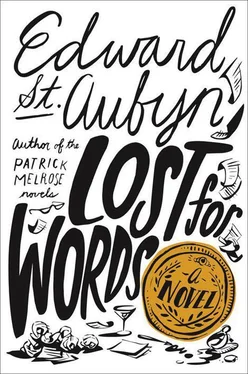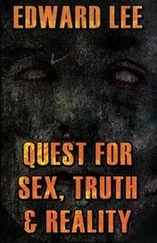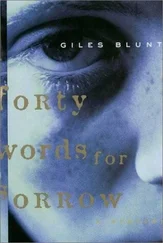When he finally arrived at the outskirts of the city, he wrapped his borrowed garments more tightly around himself, cupping his palm over his nostrils to filter the stagnant air, clogged with the thick odours of cooking, the stench of sewage and the reek of rotting marigolds. He finally emerged from the miserable maze of leprous lanes, their mud walls plastered with drying cow dung and streaked with crimson eructations of betel juice, and found himself on open ground overlooking the river. Back at the palace the melting spring snows were artfully channelled into fountains and bathing pools, into swift streams whose murmuring music enlivened shaded pleasure grounds; here, beside the city, the sluggish flood burnt in the sun like molten glass, its unlovely banks strewn with garbage. Somewhere down by the glaring water he could hear the crackle of a funeral pyre. Slipping on the dark glasses which, mercifully, he had tucked into his shirt pocket at the last moment, Sonny watched as a blackened corpse, excruciated by the intense heat, sat up for the last time, while a pariah dog gnawed on a charred limb that had escaped the flames and lay smoking on the greasy beach. Further along the shore, an indifferent washerwoman beat clothes on a rock and chucked them into a tub nearby.
Shaking off these memories as he moved towards the exit, Sonny nodded at the cluster of air hostesses, accepting their longing to see him again on board their airline as the inevitable consequence of the awe that he inspired. One of them, not completely ignorant of the history and traditions of her country, must have known and then told the others, in a lather of excitement, that the passenger in the front row (he had, as usual, reserved the entire front row, so as not to find himself sitting next to that famous bore, God-Knows-Who) was the six hundred and fifty-third maharaja of Badanpur. Sonny could trace his ancestry, according to the highest Brahminical authority, back to Krishna, the dark-blue god. The thought of those happy days when gods had mingled freely with humankind, and infused his own lineage with divinity, brought a radiant smile to Sonny’s face, as if he were Krishna himself, smiling at the exquisite milkmaid who was to become the first great Queen and Founding Mother of the House of Badanpur. Sonny saw the pretty little girl who had fetched his frock coat stagger for a moment, as if trying to regain her balance after an obscure shock wave that only he could fully understand had passed through the cabin. He almost reached out to support her, but checked his compassion, feeling that his touch might have the opposite effect, throwing this frail human creature to the ground and robbing her of her sanity, like a circuit incinerated by a charge that it was never designed to carry.
As he sped through Heathrow’s long low corridors in a beeping golf cart, Sonny checked his phone to see if Katherine Burns had sent a text, shedding light on the mystery of The Mulberry Elephant having so far received no notices in the British press. He didn’t pretend to understand the workings of a newspaper editor’s mind, but he could imagine that the press would want to make a bigger splash by synchronizing all the profiles, reviews, interviews, television chat shows, and guest appearances in popular soap operas, with the explosive appearance of Mulberry on the Elysian Big List. The more he thought about it, the more obvious it was that there could be no other explanation, but he was disappointed, if not altogether surprised, that Miss Burns was so overcome with professional jealousy that she was unable to tell him herself. He had only received one communication from her, a scratchy postcard thanking him for lunch, at least a month too late, and saying that she had given Auntie’s cookbook to her publisher, but that it was a crowded market and not to raise her hopes too high.
At the UK Border, an absurd little man asked Sonny the purpose of his visit. When Sonny said that he had come two weeks ahead of the Big List, so as to be thoroughly well rested before the hullabaloo of the publicity circus, the little man asked him what exactly this publicity would be for.
‘My novel, of course,’ said Sonny.
‘So, you’ve come to the UK to promote a novel,’ said the man.
‘I have come to accept congratulations for my novel,’ said Sonny impatiently. ‘I have nothing to do with trade.’
‘Is the novel published in the UK?’
‘No!’ said Sonny. ‘It is published in India — privately!’
‘So you are in fact trying to promote and sell goods from India in the UK,’ concluded his tormentor, ‘but on your Immigration Form you ticked the box stating that the purpose of your trip is pleasure.’
‘The purpose of my entire existence is pleasure,’ said Sonny angrily, ‘but I can’t say that I’m experiencing any at the moment!’
He had perhaps been unwise to lose his temper. He spent the next four hours in a depressing cubicle talking to one grim example after another of the bureaucratic breed. When he showed them his four First Class return tickets, and a phone call to Claridge’s confirmed that he’d booked the Arnold Bennett Suite for the next month, they reluctantly admitted him to the country, but spitefully limited his visit to twenty days, giving him only five days after the Big List. To think that his ancestors had already spent millennia being cooled by rose sherbets and peacock fans, while these fellows were still prancing around on frigid beaches, dressed in rotting animal skins, and jabbering away in the rudiments of a language it had fallen on him to raise to the highest level of art, brought him close to hysteria, but by the time he was reclining in the back of the Claridge’s car, massaging his temples, the calm waters of luxury and destiny started to close over the ripples of mere circumstance, and he decided that he would indeed leave the country in twenty days, at his own instigation, in order to spend an amusing night in Le Touquet, or Deauville, returning to England the next day, in the reasonable expectation that on this occasion the border would not be guarded by a complete madman .
As Vanessa looked up from her armchair and stared out at the quad, the pale-honey stone of the college chapel and the leaded diamonds of its window-panes lit up in a burst of sunlight, and then darkened again. She imagined the scudding spring clouds she couldn’t see; she noticed the invitation from the brief shift of light to transcend and then reclaim her overburdened mood. She accepted and put aside all these mental operations and felt restored, after only a few moments of lucid daydreaming, to a salutary independence of mind in which she could place her attention where she chose, with little interference from her emotions and her surroundings.
She was doing what she was paid to do: being intelligent about writing. Rather too much writing, it was true. In just over an hour her first-year students would be coming to read their essays on ‘Evil in the Brontës’. As usual, none of them would have read Villette . She had eight essays to mark before tomorrow on the Metaphysical poets. (‘Yoked by violence together’ — was Dr Johnson right? They would all say no, of course, and quote T. S. Eliot on Donne.) The second draft of a PhD thesis on the history of the semi-colon, which Vanessa had recklessly agreed to supervise, would have to wait until Saturday. Sunday was earmarked for her own book on Edith Wharton’s Women. The trouble was that on Sunday she and Stephen had to go and see Poppy in the clinic. Poppy was back inside after her weight dropped below thirty-five kilos. The slightest hint that her mother was in a hurry to get back to work would be treated by Poppy as further evidence of betrayal and neglect, of Vanessa’s preference for ideas over human relationships, of an academic ambition whose impossibly high standards were ultimately responsible for her illness. Poppy’s eating disorder had started during the term before her GCSEs. She later explained, or made up the explanation, that she felt she was not only competing with all the students in her year, but also with her donnish parents, who took her success for granted and only paid attention to her failures. Later, when she did her A-levels, she won a scholarship to Cambridge, where both her parents taught. On the other hand, she had to be admitted to hospital for the first time that year. In support of her argument, it was true that this crisis secured her far more parental attention and professions of love than she had ever been given before.
Читать дальше












